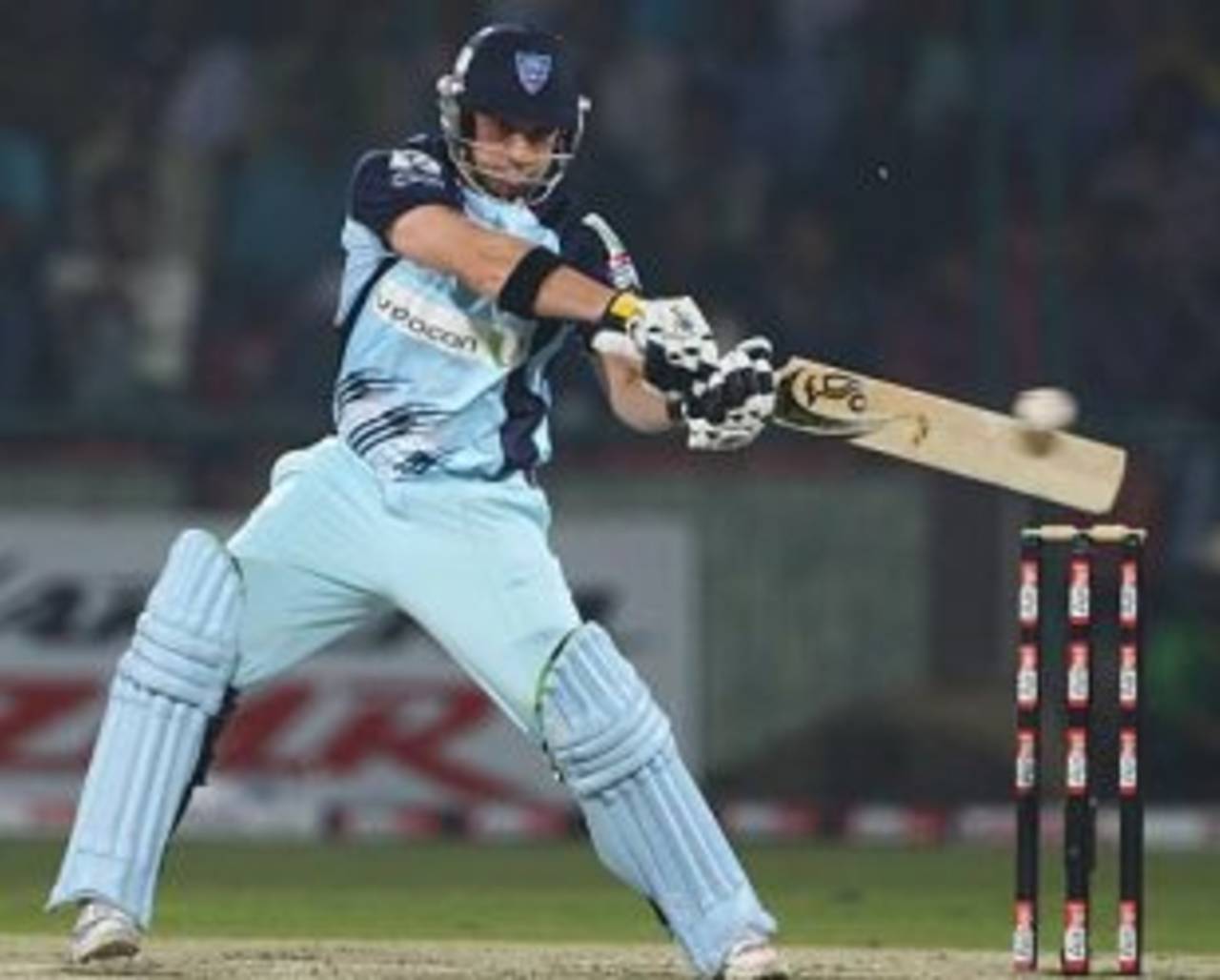There must have been a few Chelsea and Manchester United fans who felt a little odd when the two teams clashed in the 2008 Champions League final. The venue, Moscow, was 2500 km away from the scenes of their usual skirmishes, Stamford Bridge and Old Trafford. Compared to the sense of displacement felt by supporters of New South Wales and Victoria in Delhi tonight, that was nothing though. As the crow flies, it's 10,193 km to Melbourne, 10,416 to Sydney. For one of sport's most ancient rivalries - spanning 262 games and 117 years - this truly was a step into the unknown.
New South Wales have been dominant both at Sheffield Shield (45 wins to Victoria's 27) and 50-over cricket (nine triumphs to four), but the Twenty20 format is one in which the poorer cousins from Melbourne can claim greater mastery. They were well on course for a fourth consecutive success in the Big Bash
last January until Ben Rohrer's 20-ball 44 and a bye off the final ball gave NSW the trophy for the first time.
On a slow and low pitch where both had previously excelled - Victoria thrashed the Delhi Daredevils, while NSW were way too good for both Eagles and Sussex - you expected a closely-fought game. Apart from a Shield match at Albury (countryside NSW, in 1989) and a 50-over contest in Canberra (2006), the contest had never strayed too far from the traditional venues in Melbourne and Sydney, but never had there been so much at stake as on this early winter's night at the Feroz Shah Kotla.
In financial terms, the difference between exiting the tournament in the semi-final (US$500,000) and winning it (US$2.5 million) was huge. It's probably fair to say that there's never been a domestic match with so much riding on the outcome. Sadly, the occasion seemed to get to Victoria who were never in the game after a tidy first over from Shane Harwood.
David Warner and Phillip Hughes are quite an opening combination, one determined to bust the myth that left-handers make more elegant batsmen. If Hughes' bat comes down like an axe, the Warner method is redolent of the blacksmith on his anvil. Between them though, they took Peter Siddle apart, combining straight-bat flails with tennis-forehand smears. One such swipe from Hughes, down to the sightscreen, was spectacularly ugly. In this format though, aesthetics mean nothing, and by the time the Powerplay was over, New South Wales had 56 on the board.
"We'd pretty much summed up in a team meeting last night what we were going to do," said Warner after the game. "The plan was to target the sightscreens. When Phil was playing across the line, I told him, 'Mate, we can't afford to do that at the moment.' He played his natural game after that. "
Only Harwood and Andrew McDonald, with his slow medium pace pitched short of a length, adjusted to the conditions. Siddle was too full and Jon Holland, the left-arm spinner, was also brutalised. And though the batting lost some fizz in the second half of the innings, 169 was at least 30 more than Victoria could reasonably have expected to chase.
"They took the game to us," a disappointed Cameron White said. 'It's not easy to play like that on a pitch like this. But we were a little too full or a little too short with our bowling."
While other captains have whined about having to play on these Delhi pitches, Simon Katich has been utterly phlegmatic about it. "It's like the slow pitches we play on in Sydney," he said when asked if he would have preferred to play the semi-final in Hyderabad. "We're quite used to it." He and his side have made the adjustment seamlessly, and Katich's captaincy deserves plaudits, both for giving Nathan Hauritz a share of the new ball this evening, and also for bringing on a left-right combination against the spinners earlier in the game. New South Wales have been flexible without being gimmicky, and Katich has had an answer for every situation, Kieron Pollard excepted.
Brett Lee has bowled with impressive control and fiery pace, and the support from Doug Bollinger, Stuart Clark and the innocuous-looking Moises Henriques has been tremendous. And with Hauritz getting prodigious turn to go with his new-found self-belief, no batting side has really looked at ease against them. Pollard's heroics in Hyderabad merely obscured the fact that Trinidad and Tobago were comfortably second-best for 35 overs of that match.
Add in the likes of Rohrer, who produced another cameo tonight, and the promise of Steven Smith, and it's not hard to see why Katich's side will be huge favourites on Friday night, no matter who they play. They may be a long way from home, but Australia's most successful state side seem intent on proving that, like the national team, they're a class apart.
Dileep Premachandran is an associate editor at Cricinfo
